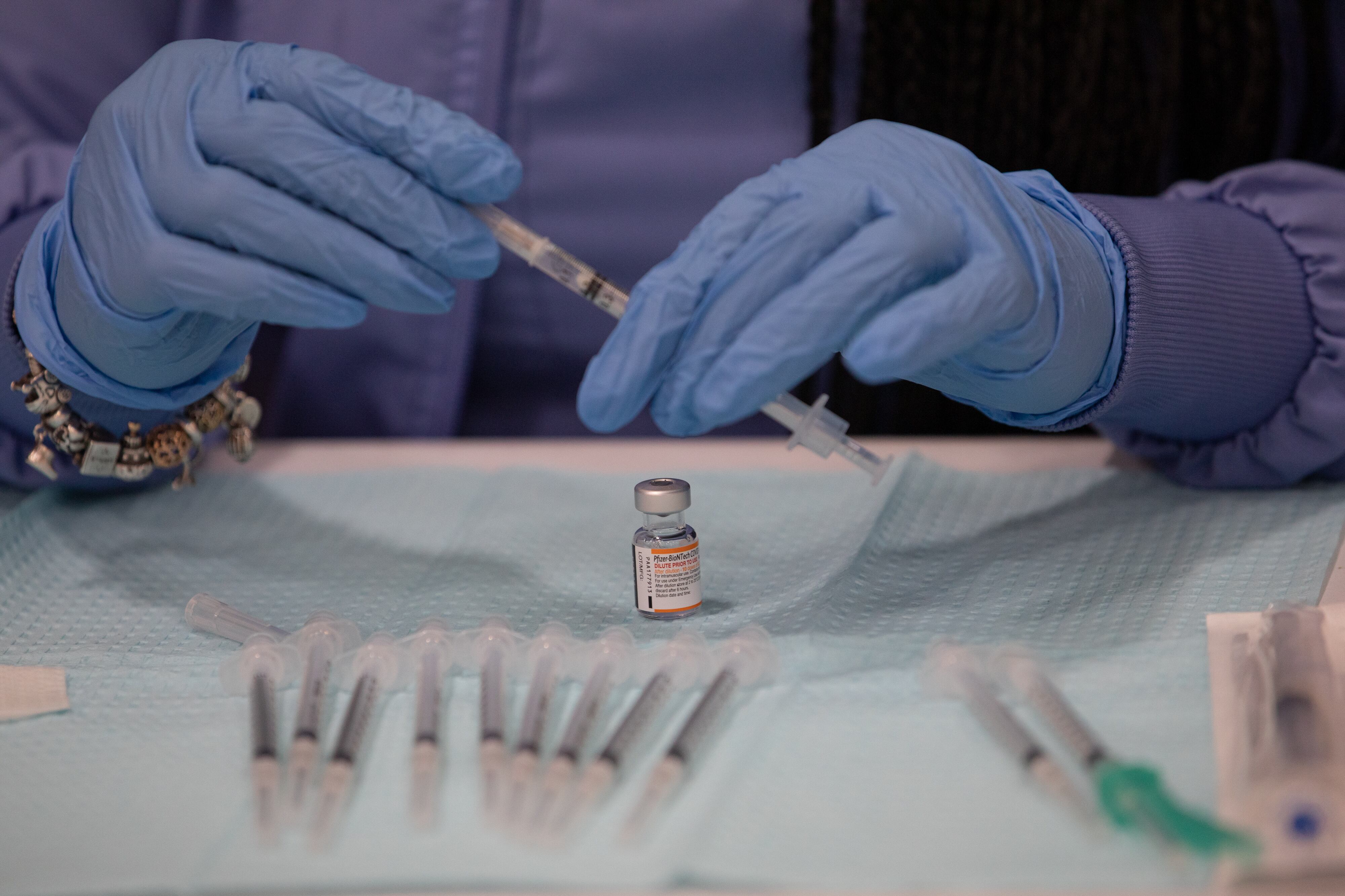Chicago Public Schools has temporarily stopped giving COVID-19 vaccines at school-based vaccination events and clinics, while officials wait for the recently approved new vaccines to arrive.
The move comes after the school district scaled back COVID guidance — ending school-based testing and continuing with no masking or quarantine requirements.
Chicago public health officials said Thursday that doses are expected to be here in the “coming weeks” and by early October, supply of the new version of the vaccine should be “plentiful.”
They encouraged anyone older than 6 months to get the new COVID vaccine as cases are already starting to rise heading into the fall and winter months.
“It’s clear that this will provide additional protection against COVID regardless of what vaccines you’ve gotten in the past, whether they were the primary series or last year’s bivalent booster,” said Brian Borah, medical director for Vaccine-Preventable Diseases Surveillance at the Chicago Department of Public Health.
CPS officials said once doses arrive, the district will resume offering the shots for free.
The district is no longer tracking COVID vaccination rates by school or among students and staff. It is continuing to track self-reported cases. In previous years, data showed fewer than half of students were vaccinated with the original COVID vaccines and boosters, with schools on the South and West sides having some of the lowest rates of uptake.
CPS has 27 school-based health clinics and continues to offer vaccination events at schools and mobile events at charters and high schools. Students can also access free flu shots and vaccinations for other viruses that are required to attend public school, including tetanus, measles, and meningitis. According to WTTW, about half of all CPS schools are below “herd immunity” for measles, but rates have improved since dropping during the pandemic.
Because the COVID public health emergency has ended, vaccines for the virus have become “commercialized” and no longer covered by the federal government. City public health officials said those with insurance, including Medicare and Medicaid, should go to their doctor or local pharmacy for a shot first.
But the city and school district will continue to provide free vaccines to all children under 18 and those without insurance or those who are underinsured, regardless of immigration status, under other federal programs that allow them to do so.
In addition to the school-based clinics and events, the city operates three public immunization clinics in Uptown, Pilsen, and West Elsdon, near Midway Airport.
The department of public health will also run annual COVID and flu vaccination clinics at City Colleges locations on Saturdays in October and November.
- Saturday, Oct. 7, Malcolm X College
- Saturday, Oct. 14, Kennedy-King College
- Saturday, Oct. 21, Wilbur Wright College
- Saturday, Oct.28, Olive-Harvey College
- Saturday, Nov. 4, Richard J. Daley College
- Saturday, Nov. 11, Arthur Velasquez Institute
- Saturday, Nov. 18, Truman College
Becky Vevea is the bureau chief for Chalkbeat Chicago. Contact Becky at bvevea@chalkbeat.org.





